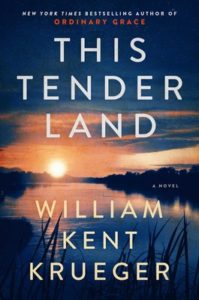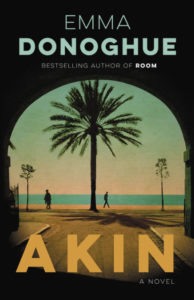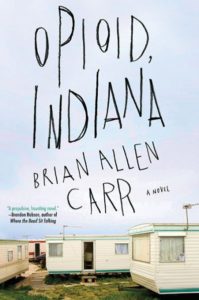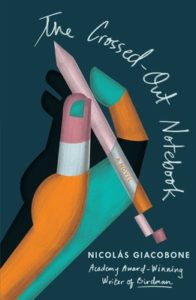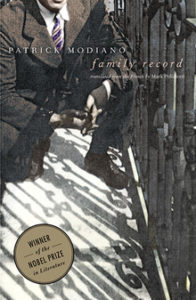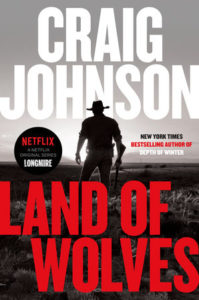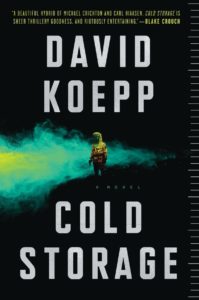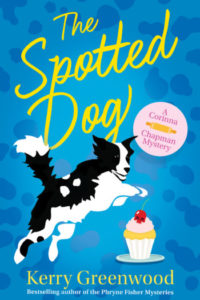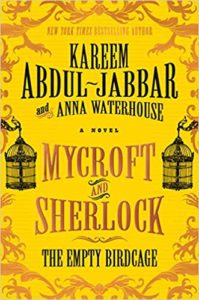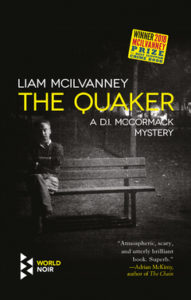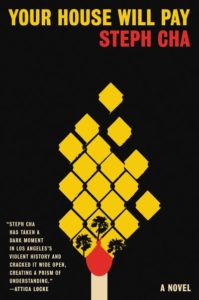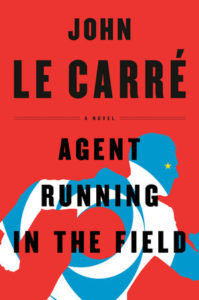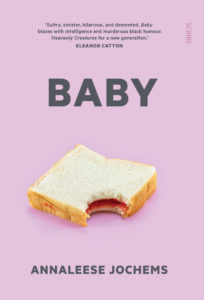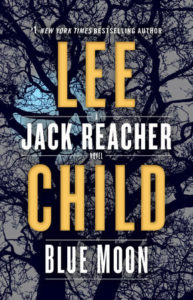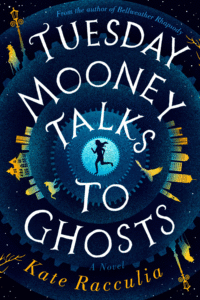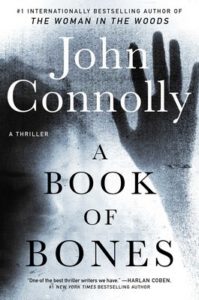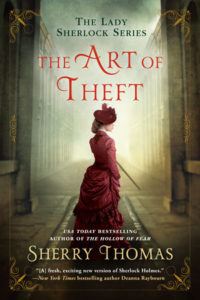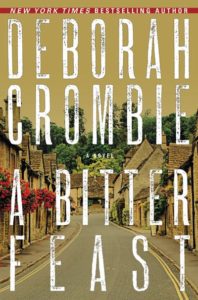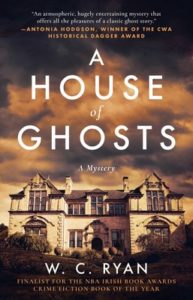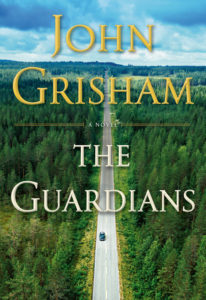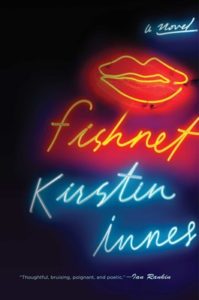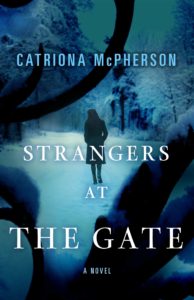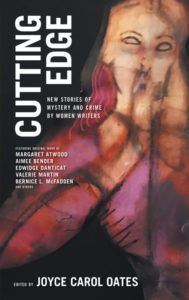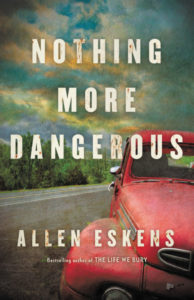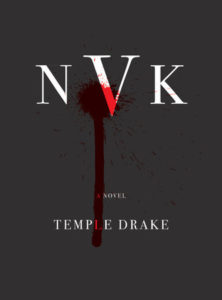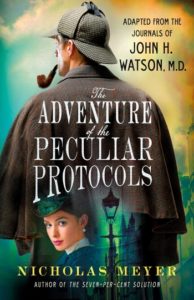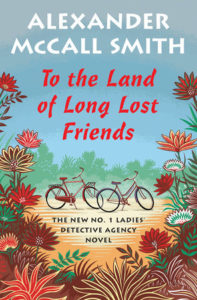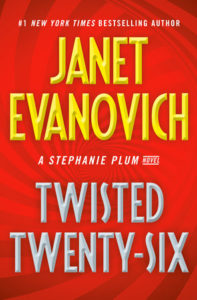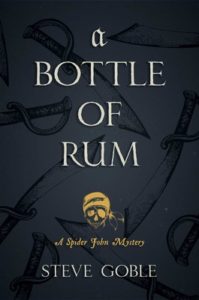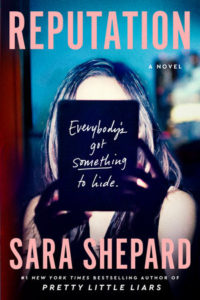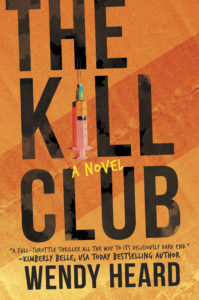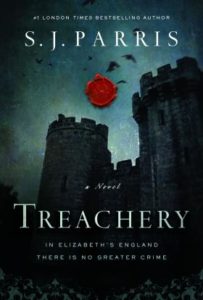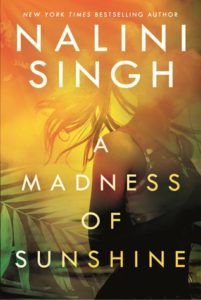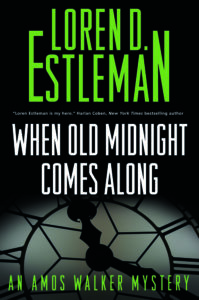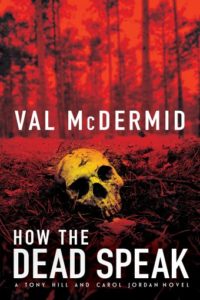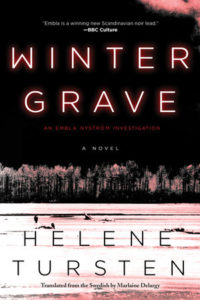The days are getting shorter while the TBR stacks are getting taller. The summer thriller season is over, but where that used to mean a slow-down in the crime world, now it’s the time of year when some of the heaviest-hitters in the community bring out new offerings just in time for the fall bounty.
Attica Locke leads the way this season with a new exploration of community, history, and race in East Texas, while icons like Michael Connelly, Lee Child, Janet Evanovich, and John Sandford are back with exciting new installments in beloved series. October puts incisive historical crime at the fore and also highlights the new shift the mystery world is taking, merging the psychological thriller with (seasonally-appropriate) gothic fiction. It’s also full of quirky standalones expanding the boundaries of suspense. The richest bounty of all may be in espionage, as the close of 2019 brings an incredible run of spy novels from John le Carré, Alan Furst, and Joseph Kanon. It all adds up to one of the best book seasons in recent memory, and a true showcase for the diversity of stories the crime community is exploring now.
Assembled here for your reading calendar is our selection of the year’s most anticipated crime books. Selections are based on the anticipation levels of the usual coterie of editors, contributors, advisers, accomplices, and co-conspirators. For those who can’t get enough, check out Part I and Part II of our 2019 Most Anticipated book choices. 2019 has been a remarkable year in crime, and there’s a mystery out there for every taste, waiting to be solved.
September
Attica Locke, Heaven, My Home (Mulholland Books)
Attica Locke’s sequel to Bluebird, Bluebird, her Edgar-winner novel of crime and reckonings in East Texas, has a fantastic premise—Texas Ranger Darren Matthews heads out to Lake Caddo to track down the missing son of a member of the Aryan Brotherhood, but with a secret mission: to collect evidence against the boy’s father and other members of the white supremacist gang before Trump can shut down the Rangers’ investigation. As Matthews searches for the boy in the Cajun-influenced town of Jefferson and its environs, he discovers a sinister effort on the part of the Aryan Brotherhood to take over land in the near-by historic free black town of Hopetown. Steeped in the music, history, swampy bayous, and piney woods of East Texas, Locke’s latest is not to be missed.—Molly Odintz, CrimeReads Associate Editor
William Kent Krueger, This Tender Land (Atria)
Krueger’s latest novel is more epic adventure than traditional thriller, but the author’s many ardent fans will be no less anticipating its fall release, as Krueger takes on a grand and ambitious story about four orphans traveling during the Great Depression after breaking free from the Lincoln School for Native American children. This Tender Land is a moving portrait of a time and place receding from the collective memory, but leaving its mark on the heart of what the nation has become.—Dwyer Murphy, CrimeReads Managing Editor
Lara Prescott, The Secrets We Kept (Knopf)
Prescott’s debut is an epic of passion, daring, and art. Part spy thriller, part intimate drama, The Secrets We Kept is the story of two women working for the government during tense days in the Cold War, enlisted for an audacious plot: smuggling Pasternak’s Dr. Zhivago out of the Soviet Union and into worldwide publication.—DM
Emma Donoghue, Akin (Little, Brown)
As we know from Room, Emma Donoghue is excellent at writing children (no easy feat). In Akin, the child is slightly older, an 11-year-old in need of a guardian, who he finds in a great uncle about to embark on a trip from New York to his birthplace in France. The two make the journey together, in what sounds like the perfect blend of historical mystery, family saga, and odd-couple travelogue.—Jessie Gaynor, Lit Hub Social Media Editor
Stephen King, The Institute (Scribner)
As we wait for the follow up film to It to come to theaters, King once again puts enormous powers in the hands of babes—but what will the gifted children starring in his latest do with their special abilities, and what do their strict taskmasters at their mysterious training facility plan to do with their vulnerable, yet dangerous, young charges?—MO
Kevin Barry, Night Boat to Tangier (Doubleday)
I am an OG Kevin Barry fan, down since day one when he published his first collection with the small Irish press (and my old place of employment) The Stinging Fly. Barry’s new book, the story of two Irish criminals biding their time in the Spanish port city of Algeciras, is full of foreboding and of ghosts, not least that of Samuel Beckett, and is continuing proof of this writer’s ability to pack more personality and mordant wit into a single sentence than most writers can manage in a novel.—Emily Firetog, Lit Hub Deputy Editor
Brian Allen Carr, Opioid, Indiana (Soho Press)
Brian Allen Carr isn’t messing around. Opioid, Indiana drops you right in with seventeen-year-old Riggle and his dire situation: his parents are dead, his uncle is missing, and he needs rent money fast. His desperation leads him face-to-face with the opioid crisis. Sometimes gut-wrenching, sometimes heartwarming, Opioid, Indiana paints an empathetic portrait of a survivor.—Katie Yee, Book Marks Assistant Editor
Nicolás Giacobone, tr. Megan McDowell, The Crossed-Out Notebook (Scribner)
You know how sometimes you lock yourself in a room and promise yourself you’re going to write something and it never actually happens? Well, The Crossed-Out Notebook is sort of like that, plus kidnapping. A failed novelist is kept in a basement by a world-famous director and forced to write a masterpiece. He spends the day writing, gets threatened with a gun (you know what Chekhov said about that), toils all night, crosses out everything he’s written (relatable), and begins again. This dark comedy/suspense novel is a page-turning take on the conditions in which we can create. Misery sure loves company.—KY
Patrick Modiano, Family Record (Yale University Press)
If you’ve read one book by the French Nobel laureate, you’ll recognize the set up here: the familiarity of Paris, the present’s judder when a figment of the past reappears, the sudden vertigo as Modiano or a stand-in peers at the source of shame, wondering why he alone, in his shattered family, seems to care. It’s all here and yet, as ever with Modiano, the tiny alterations to this script mean this is not just more of the same, but a new tack into his dreams of a gone world. Driven by sumptuously perfect vignettes—tales of collaboration nearly forgotten, run-ins with a deposed King, the chronicle of life as a father—this book deepens the sense of unease and candor from which Modiano’s work so endlessly proceeds.—John Freeman, Lit Hub Executive Editor
Craig Johnson, Land of Wolves (Viking)
No ‘most anticipated’ list would be complete without including the latest Longmire novel from Craig Johnson, whose beloved Sheriff Walt is back in Wyoming after his most recent and tumultuous investigations in Mexico. No time for him to recuperate, though, as a would-be suicide in shepherd country draws his attentions and a new Basque crime family rears up.—DM
Walter Mosley, Elements of Fiction (Grove Press)
Mosley, an icon of contemporary crime fiction, brings his many insights on craft and storytelling to bear in this instructive and illuminating new guide. Elements of Fiction is clearly the work of an artist who has spent a lifetime thinking about what makes a story powerful, how to tell it, and how to hone and improve your craft.—DM
David Koepp, Cold Storage (Ecco)
David Koepp, a screenwriter who wrote the original Mission: Impossible movie as well as, um, Jurassic Park and also Indiana Jones and the Crystal Skull (not his best), sold his debut novel to Ecco in 2018 for “a significant seven figures.” Obviously, there’s already a movie in the works, and why not? It’s a climate-change-tinged disaster thriller in which rising temperatures activate a long-buried fungus poised to destroy humanity—unless our heroes can stop it. I’m already biting my nails.—Emily Temple, Lit Hub Senior Editor
John Vercher, Three-Fifths (Agora)
John Vercher’s compelling debut follows a young biracial man passing as white who must confront his own internalized hatred after a fateful night leaves a young black man dead at the hands of the protagonist’s school-buddy-turned-white-supremacist. This is one of many books we’re looking forward to coming from the new imprint Agora.—MO
Soren Sveistrop, The Chestnut Man (Harper)
Sveistrup’s debut thriller, The Chestnut Man, is one of the best Scandinavian noir novels I’ve read in ages. The premise is a little complicated: a homicide detective with aspirations and a Europol washout are on the trail of a killer whose compulsion is to kill mothers he sees as unfit. The twist: at each crime scene they find a simple doll made from chestnuts which bears the fingerprint of a government minister’s daughter who has been missing for a year. The book races along, covers some of the standard Scandi tropes about social welfare, but mainly forges its own path—a gruesome and enthralling one.—Lisa Levy, CrimeReads contributing editor
Kerry Greenwood, The Spotted Dog (Poisoned Pen)
Kerry Greenwood’s Phryne Fisher Mystery series (the inspiration for the beloved TV series Miss Fisher’s Murder Mysteries) is the literary epitome of comfort. There isn’t a more relaxing series of books (about murder) that exist. Greenwood’s next new series, the Corinna Chapman series (of which The Barking Dog is the first installment), promises to be just as cozy. The amateur detective protagonist this time is a dog-loving bakery owner, investigating a missing service dog. It’s a really sanitary mystery, when you think about it, for a detective who cooks food for a living.—Olivia Rutigliano, CrimeReads Editorial Fellow
Kareem Abdul-Jabbar and Anna Waterhouse, Mycroft and Sherlock: The Empty Birdcage (Titan Books)
The third in the prequel series starring Sherlock Holmes’s oft-overlooked brother, the brilliant government employee Mycroft, written by 6-time NBA MVP and noted Renaissance Man Kareem-Abdul Jabar and screenwriter Anna Waterhouse, this novel concerns the most apparently-Victorian of plots: the terrorization of London by a mysterious serial killer. Sherlock, Mycroft, and Mycroft’s longtime friend Cyrus Douglas, who is Trinidadian, are on the case. The Mycroft books are notable for shifting the focus of a longstanding Victorian literary tradition, instead creating deep characters who would have been largely ignored or nonexistent in the actual literature of the age: characters of color.
Liam McIlvanney, The Quaker (Europa)
It’s cold and there is a serial killer loose in Glasgow. Is there more information you need? Liam McIlvanney is one of the most promising authors in Scottish crime fiction, and his latest will not disappoint his growing readership.—OR
Shaun Hamill, A Cosmology of Monsters (Pantheon)
Part horror story, part coming-of-age novel, part psychological thriller, part multi-generational family drama, A Cosmology of Monsters is a smart, brooding reworking of the H.P. Lovecraft bestiary, elegantly narrated by a unique son. Plus, Stephen King loved it. Those were his words. He said “love.”—OR
October
Steph Cha, Your House Will Pay (Ecco)
Steph Cha has won universal acclaim for her Juniper Song series, with its focus on portraying LA through the eyes of a millennial detective more concerned with friendship than romance, and I am psyched for her first stand-alone. Your House Will Pay was inspired by the complex history and tensions in 90s-era LA, and takes a hard look at the long-term consequences of bigotry, prejudice, and shame. It’s even better than its cover! And that’s saying something, cause the cover is absurdly gorgeous.—MO
Michael Connelly, The Night Fire (Little, Brown)
Fans of Harry Bosch (and Michael Connelly) have read along eagerly in recent years as one of the most iconic characters in the annals of crime fiction has grown ever more complex and intriguing through his work with LAPD cold cases, and through his connection to Renee Ballard, with whom he’s teaming up again this year in The Night Fire. Bosch’s mentor on the force dies at the start of this one, and his widow gives Bosch an unexpected bequeathment: a murder book from a decades-old case. The case is fascinating in its own right, but you know that Bosch’s passion and his sense of duty is going to be extra-stoked now that he’s working on behalf of his old rabbi. Every fall, Connelly finds a way to bring out some new magic in this classic series.—DM
John le Carré, Agent Running in the Field (Viking)
John le Carré’s 25th novel is set in London in 2018, and will apparently be tackling “the division and rage at the heart of our modern world.” Otherwise, we’ve got very few details to work with: the publisher tells us that the protagonist, “in a desperate attempt to resist the political turbulence swirling around him, makes connections that will take him down a very dangerous path.” Which tells us exactly nothing, so we’ll all just have to wait patiently—or steal an advance copy.—DM
Elizabeth Hand, Curious Toys (Mulholland)
From an author who has achieved acclaim for stories of crime, horror, and fantasy, comes a new tale of intrigue and murder that checks off many of my favorite boxes. It’s got: lady detectives, old seaside amusement parks, the Gilded Age, silent film, women who disguise as men to embed in male-only groups, women who look out for other women. I could continue, though I’ll reel in my excitement for the sake of finishing this blurb. In 1915, a fourteen-year-old girl, Pin, disguises as a boy to join a gang that roams around Chicago’s Riverview amusement park. She doesn’t know that she’s in a prime position to observe a serial killer who uses the park as his hunting ground—but when she sees a man bring a girl into the Hell Gate ride and leave alone, she knows something has gone wrong. And only Pin, the invisible girl detective, can catch an invisible killer.—OR
Annaleese Jochems, Baby (Scribe)
Things get exciting for Cynthia, a bored twenty-one-year-old, when she runs off with Anahera, her beautiful fitness coach. With stolen money, they buy an old boat called “Baby” that they use to sail away to a deserted island, together. But their adventure doesn’t go as planned, in this clever tale of grotesqueness and obsession.—OR
Gar Anthony Haywood, Good Man Gone Bad (Prospect Park Books)
Gar Anthony Haywood’s iconic private eye Aaron Gunner is back! And this time, it’s personal. When Gunner’s cousin commits familicide, then kills himself, Gunner knows something’s up, and starts his own investigation into the murder, while also working a paying case for a veteran with traumatic brain injuries accused of murdering his boss. Both cases tie into an America beset by new forms of old prejudices, for a work of fiction bound to be as thoughtful as it is thrilling.—MO

Michael Nava, Carved In Bone (Persigo Press)
Nava, one of the best and most prolific gay crime fiction writers we have, is back with a new Henry Rios novel. This one is set in 1984, with Rios fresh out of rehab and trying to learn to live without his old habits. When he reluctantly takes a job as an insurance investigator, he finds himself with a case which paralells his own struggles in deep and unsettling ways.—LL
Joe Hill, Full Throttle (William Morrow)
This new collection of short fiction by acclaimed horror and suspense writer Joe Hill proves that Hill can do it all, with tales inspired by mythology, fairy tales, life on the road, and of course, the eeriest bodies of water—lakes. Did we mention that we find lakes creepy? What are they hiding?!?!—MO
Lee Child, Blue Moon (Delacorte)
Jack Reacher simply wants to do a good deed for an elderly couple, and in the blink of an eye he’s caught between a war waging between Albanian and Ukrainian criminal gangs. Such is the life of Lee Child’s aging hero, now into his twentieth book—fed-up with the way the world pounces on the weak. Always getting roped into conflicts a little improbably big for a Monday morning. If only justice were so easy, solvable or deliverable (with vengeance) in 290 pages . . . which is why these books, carved out of concrete sentences though they may be, are continuously, briefly, satisfying.—JF
Kate Racculia, Tuesday Mooney Talks to Ghosts (HMH)
In this delightful ode to The Westing Game, Kate Racculia takes us on a puzzle-solving adventure! When an eccentric billionaire dies, leaving behind an epic treasure hunt through the city of Boston as his legacy, puzzle-enthusiast and inveterate loner Tuesday Mooney is ready to put all her brainpower towards deciphering the cryptic clues.—MO
Teresa Dovalpage, Queen of Bones (Soho Crime)
Teresa Dovalpage, originally from Havana, introduced her Santeria-practicing ex-cop detective in her crime fiction debut, Death Comes in Through The Kitchen, and now she’s back for a story that blends intricate legwork in the name of investigating with a meditation on the meaning of family, nation, and home.—MO
Raymond Khoury, Empire of Lies (Forge)
In Khoury’s fascinating alternate history take on the Ottoman Empire, a time-traveling magician changes the course of history to lead the Ottomans to take over all of Europe in the 17th Century. Fast forward to the present day, where a weary bureaucrat works to stay abreast of all threats against the empire, only to find himself confronting the ultimate threat—the secret to the empire’s rise.—MO
Stephen Chbosky, Imaginary Friend (Grand Central)
Stephen Chbosky first found his way into our hearts with his seminal coming-of-age novel, The Perks of Being A Wallflower, which I may or may not have read 20 times during high school during my Rocky Horror Picture Show phase, and his new novel, Imaginary Friend, promises to be just as heart-rending, although in an entirely different way. Channelling echoes of Stephen King, Chbosky takes a mother and son on the run from an abusive patriarch to a small town in Pennsylvania, where the son disappears into the forest and then reemerges with a mission—build a treehouse by Christmas, or face the end of the world.—MO
Patricia Smith, Remember (Agora)
Patricia Smith’s debut heralds the entrance of a writing talent to be watched, and as one of the first books to be released by Agora, a new imprint from Polis Books, it bodes well for the future of publishing. Remember, with its discussion of unreliable memories and a toxic father-daughter relationship based on forgetting, should please fans of Ottessa Moshfegh’s Eileen.—MO
Nelson DeMille and Alex DeMille, The Deserter (Simon and Schuster)
Scott Brodie and Maggie Taylor of the Criminal Investigation Division are tasked with locating Captain Kyle Mercer, a member of the army’s Delta Force who has willfully vacated his post in Afghanistan, vanished without a trace, and then turned up in Caracas, Venezuela one year later. But things aren’t so simple, and Brodie and Taylor find themselves racing to find their man, and trying not to turn on one another.—OR
John Connolly, A Book of Bones (Atria/Emily Bestler)
October is the spooookiest month, so it’s a treat to be able to look forward to a new supernatural thriller from John Connolly. His series character, Charlie Parker, returns, this time to investigate a murder that may be a sacrifice to an unspeakable horror —an investigation that will take him from Saxon mounds to Southwestern deserts, for one of the most wide-ranging installments in the series yet.—OR
Sherry Thomas, The Art of Theft (Berkley)
Thomas’ series character Charlotte Holmes, a more gourmand and life-loving version of the austere detective, takes on her first case of art theft and recruits the help of her charming friends (including the will-they-or-won’t-they Lord Ingram) to help gain entry to the Yuletide Ball of the century in a novel sure to please fans of Sherlock pastiches and traditional mysteries alike.—MO
A.J. Banner, The Poison Garden (Lake Union)
We love a good Victorian house full of secrets, and the house at the center of Banner’s chilling new novel of suspense is also in possession of a poison garden—a late Victorian botanist’s fancy that can be very dangerous indeed. In an ode to traditional mysteries with very modern elements of psychological suspense, Banner introduces us to Elise, an herbalist with a perfect husband and a happy home—or so she thinks, until her wedding anniversary, when everything starts to unravel…—MO
Charles Todd, A Cruel Deception (William Morrow)
WWI nurse Bess Crawford is asked to carry out a mission on behalf of the crown—to find a man, Lawrence Minton, a broken and angry former officer who has abandoned his responsibilities at the Peace conference. Nearly suicidal, Minton is haunted by something even worse than the war, itself—and it will take all of her energy, and faith, to uncover it.—OR
Erica Wright, Famous in Cedarville (Polis)
We first came to love poet and crime writer Erica Wright through her absurdly entertaining Kat Stone mystery, and now Wright’s branching out with the release of her first standalone novel, Famous in Cedarville, in which an elderly actress of the silver screen has died, and only the town eccentric is interested in finding out if it was murder.—MO
Rene Denfeld, The Butterfly Girl (Harper)
Rene Denfeld first introduced us to heroine Naomi, a traumatized woman who has dedicated her life to finding lost children, in 2017’s The Child Finder. Naomi’s back in The Butterfly Girl, and now she’s on a quest to find her long-lost younger sister that takes her into the homeless community of Portland, Oregon. Denfield is a journalist and an advocate for abused children who brings her own experiences into her fiction, for empathetic portrayals of society’s most vulnerable.—MO
Lawrence Block, From Sea to Stormy Sea (Pegasus)
For several years now, crime legend Lawrence Block has been pushing crime readers and writers into new realms of art with his series of anthologies inspired by famous paintings, with contributions from some of the mystery community’s most admired writers. In the new iteration, Block has narrowed the painting selection to American artists. Authors Sara Paretsky, John Sandford, and Christa Faust provide some of the anthology’s highlights, and of course the paintings themselves take the atmospherics in this volume to another level.—DM
John Sandford, Bloody Genius (Putnam)
Sandford has a legitimate claim for being the most purely and reliably entertaining writer in the crime world today, both with his Lucas Davenport series and the spinoff Virgil Flowers books, of which Bloody Genius is the latest barnburner. The new case takes manhunter Flowers to a local college campus where two departments are locked in a bloody, escalating feud. The cloistered, intense environment is rendered perfectly and Sandford displays his usual wit and razor-sharp prose.—DM

Stefan Spjut, Trolls (Faber)
Although this one must have been in development long before the release of the summer’s surprise folk horror hit Midsommar, there couldn’t be a better time for a book about Scandinavian horrors to be released. I can’t wait to read this tale of wolves, forests, cults, and of course, trolls! (the good kind, not the internet kind).—MO
Lynne Truss, The Man That Got Away (Bloomsbury)
In the second book of Truss’s Constable Twitten series, it is summertime in beautiful Brighton, and all is merry until a young man (a hopeless romantic no les), is found murdered in his deckchair. Constable Twitten begins an investigation that leads him to a seedy nightclub, which his partner Seargent Brunswich must infiltrate in disguise (much to his delight). The investigation, though, would be much easier if their other partner, Inspector Steine, were not so distracted with getting his own wax statue made. But the snags are part of the fun in this delightful, beachside caper.—OR
Tess Gerritsen, The Shape of Night (Ballantine)
Gerritsen, creator of the beloved and perennially bestselling Rizzoli and Isles mysteries, takes her first crack at gothic suspense with The Shape of Night, a chilling story about a woman who travels to the Maine coast (surely either the Mecca or Medina of gothic fiction) and finds herself in a house with a troubled history. Gerritsen is a masterful plotter and her talents honed in decades of crime fiction translate perfectly to the new form, with a slow, satisfying drip of secrets and revelations.—DM
Benjamin Percy, Suicide Woods (Graywolf)
In what promises to be the literary/crime crossover of the season, Benjamin Percy delivers a story collection as dark as it is lyrical. We can’t wait to read this beautiful collection of weird fiction perched between this world and beyond.—MO
Deborah Crombie, A Bitter Feast (William Morrow)
Crombie’s long-running series featuring married coppers Duncan Kinkaid and Gemma James and their boisterous extended family finds them in unusual terrain, having left their Notting Hill house for a long weekend with friend and colleague Melody Talbot’s family at their country estate in the Cotswolds, Beck House. Of course, over the course of the weekend there is a series of murders which force Kinkaid and James to make it a busman’s holiday.—LL
W. C. Ryan, A House of Ghosts (Arcade)
This murder mystery cum ghost story has a perfect set-up—in late 1917, as WWI rages on, an armaments manufacturer arranges a seance to contact his sons, both dead at the front. Attending the seaside ceremony are several spiritualists who are not what they seem (including a spy sent to hunt down fifth columnists), and when a storm hits the island and someone dies, this historically grounded gothic tale becomes a locked room mystery sure to please fans of traditional mystery and historical fiction alike.—MO
John Grisham, The Guardians (Doubleday)
Grisham is at his best working with crusading lawyers and social injustice in the Deep South, and in his latest there’s plenty of that going around, as Cullen Post, an attorney and a reverend, traveling to Florida to take on the case of a black man convicted of killing his former attorney, a crime for which he’s served over twenty years in prison while maintaining his innocence. This is vintage Grisham, with one conspiracy folding over another and all the outrages and moral compromises of the legal system exposed.—DM
Chip Jacobs, Arroyo (Rare Bird)
This is a not-so-sweet story of a boy and his dog—or rather, two boys and two dogs, each pair alive in a different time period in Pasadena, California, and each pair drawn to the Colorado Street Bridge, nicknamed “Suicide Bridge” after a deadly industrial accident during the bridge’s construction. This should please fans of historicals and anyone who loves infrastructure (and I know that’s a lot of people and not just me)—MO
Kirsten Innes, Fishnet (Gallery/Scout Press)
In this haunting and visceral debut, a young woman goes on a quest to learn the truth about her sister’s disappearance after learning of her sibling’s involvement in the sex industry. Fishnet has already earned praise from the likes of Ian Rankin, and I can’t wait to read to this searing psychological thriller grounded in women’s issues.—MO
Catriona McPherson, Strangers at the Gate (Minotaur)
In this new standalone from one of the mystery world’s most beloved figures, a couple moves to a small town that at first seems just out of a fairytale. When one of them winds up with two dead bosses, the illusion is shattered, and the couple must get to the bottom of the small town’s secrets before they become the next victims.—MO
November
J. Golakai, The Score (Cassava Republic Press)
Golukai’s reporter-activist heroine Vee Johnson returns for her second investigation, as she and her partner stumble upon a murder in the midst of what was meant to be a punishingly boring assignment reviewing a dusty tourist lodge in the middle of nowhere. As the journalists investigate, they’re drawn into an intricate web of corruption, murder, and dog-walking. Cassava Republic is one of the coolest indie international presses around, and I read all their releases religiously.—MO
Michael Crichton and Daniel H. Wilson, The Andromeda Evolution (Harper)
Slated to be published fifty years after The Andromeda Strain, Michael Crichton’s breakout novel and the first of his to be published under his name, its sequel is still shrouded in secrecy. All we know is that, this continuation The Andromeda Evolution, written by Daniel H. Wilson, imagines the return of the original novel’s threat.—MO
Lisa Jewell, The Family Upstairs (Atria)
Lisa Jewell’s been on our radar for some time now, but her latest work is bound to catapult her to the top of the lists with a fantastic twist on the manorhouse mystery. When Jewell’s protagonist turns 25, she’s finally able to learn the identity of her birth parents—and also the sole inheritor of a mansion worth millions. When she begins to delve into her past, however, she discovers the mansion once housed a cult-like group from whom she was rescued as a baby. What’s the story behind the mansion, and why have so many of its residents died in mysterious ways? We’ll all have to read this one to find out!—OR
The Big Book of Reel Murders, edited by Otto Penzler (Vintage Crime)
The Big Book series never fails to deliver on its promise. This latest weighs in at a whopping 1200 pages, chock full of stories of murder and intrigue in that most noir of locales: Hollywood. Collected by Otto Penzler and featuring work from crime fiction icons like Hammett and Christie, but also some unexpected gems from writers like Somerset Maugham, the Reel Murders book will provide you with days and days of good reading, as well as a tour through the history of mystery.—DM
Alan Furst, Under Occupation (Random House)
Alan Furst started out writing perfectly plotted and darkly atmospheric espionage novels set during the lead up to World War II; his novels have taken us ever closer to, then into the midst, of war, and his latest, set during 1942, melds his trademark research and behind-the-scenes settings for a tale of occupied Paris, where French resistance fighters work desperately against their Nazi occupiers, even as a far larger number of their compatriots are collaborating with their new masters.—MO
Joseph Kanon, The Accomplice (Atria)
Kanon specializes in the long after-effects of World War II and the darkest days of the Cold War, and in his latest, Kanon takes us on a revenge mission that will become far more complicated than either pursuer or pursued could have envisioned. A Holocaust survivor on his deathbed asks his nephew, a CIA desk jockey, to pursue a Nazi doctor hiding in Argentina. The nephew goes on the trail, assisted by a German reporter and an Israeli agent, only to discover a society where Nazis thrive in the open, and where the CIA may have its own agenda when it comes to the pursuit of long-delayed justice.—MO
Martin Cruz Smith, The Siberian Dilemma (Simon & Schuster)
In this chilling thriller, Arkady Renko, a Moscow-based investigator, is worried about the long absence of his girlfriend, Tatiana Petrovna, a journalist famous for deep-cover assignments that require her to seemingly-vanish. But when she does not return, Renko knows in his heart that something has gone wrong, and starts tracking her down. He discovers that she has been working on a piece about a young wealthy man named Mikhail Kuznetsov, a dissenter poised to take on Putin and end decades of political corruption. But Kuznetsov’s best friend and business associate has turned up dead, and suddenly matters are far more occluded and distorted for Renko than they had once seemed. Now, barely has time to find Tatiana, and bring them both back in from the cold.—OR
Joyce Carol Oates, Cutting Edge (Akashic)
This collection of feminist crime tales edited by the one and only Joyce Carol Oates is marketed to “readers who are sick and tired of the status quo, or who just want to have a little bit of fun at the expense of a crumbling patriarchal society.” Well, isn’t that everyone?—MO
Anna Lee Huber, Penny For Your Secrets (Kensington)
We were first introduced to Huber’s British intelligence agent Verity Kent in 2017’s This Side of Murder, when she’s recruited to help the war effort, and three books into the series, the war’s over, but Kent still has plenty of suspicious crimes to occupy her time. In Penny for Your Secrets, she’s roped into investigating the suspicious death of a colleague’s sister, while also aiding a longtime friend accused of murdering her no-good husband.—MO
Julie Mayhew, Impossible Causes (Bloomsbury)
The novel is set on the tiny island of Lark, which is home to a secluded and very religious society (with its own buried history of paganism). Cut off from the rest of the world for seven months out of the year by impenetrable fog, the island receives three visitors just before the mist rolls in—a young male teacher, about to become the only male teacher at the island’s school, St. Rita’s, as well as a teenaged girl named Viola and her mother, who are fleeing something terrifying that lies across the water. As the newcomers are welcomed into the village, Viola befriends the other girls on the island, joining them in secret meetings that challenge the island’s rigorous religious emphasis. It’s not long before a man turns up murdered. And it’s not long after that when Viola and three of her friends are accused of murder—and of witchcraft.—OR
Manu Joseph, Miss Laila, Armed and Dangerous (Myriad Editions)
Manu Joseph has written a political thriller with comic undertones perfect for our times. Against a backdrop of rising Hindu nationalism, an apartment complex collapses in Mumbai. The single survivor warns of a coming terrorist attack, while two teenage suspects roam the streets under surveillance.—MO
Allen Eskens, Nothing More Dangerous (Mulholland)
Allen Eskens has distinguished himself with his quiet, thoughtful thrillers that harken back to the 1960s era literature of morality, and his new book promises to be his most subtly unsettling yet. 15-year-old Boady Sanden can’t wait to get out of his stifling southern town, and choose to spend his time fantasizing about a big-city future, until a woman’s disappearance and the arrival of new neighbors forces him to think deeply on the meaning and method of his divided town.—MO
Temple Drake, NVK (Other Press)
NVK is the first in a new series that sets out to merge the gothic, the erotic, and the thriller. Set in an alternative Shanghai, the novel follows a Chinese businessman named Zhang Guo Xing who meets a Western woman named Naemi Vieno Kuusela, who seems to be too alluring to be real. But as they fall in love, he begins to learn that she is not what she seems—and may not even be precisely human.—OR
Margot Hunt, The Last Affair (MIRA Books)
This domestic thriller lands the same week as Thanksgiving, so while I want to recommend this to everyone, I especially want to recommend it to folks getting antsy over the holiday weekend. When Nora Holliday starts cheating on her alcoholic husband with a married man, it sets in motion a series of events culminating in….murder!!—MO
Liska Jacobs, The Worst Kind of Want (MCD)
Priscilla Messing has spent many years working as a caregiver for her challenging mother when she is called to Rome, to keep an eye on her rebellious teenage niece Hannah. Burnt out, frustrated, and nursing old wounds, Cilla gives up on taking care of Hannah, instead allowing her niece’s rampant, high-partying lifestyle to take care of her. But as she becomes enveloped by this youthful, hedonistic world, longing to repress her traumas with pleasure, she begins an unwise flirtation with a teenager, and feels herself petering on the brink of self-destruction.—OR
Ace Atkins, Robert B. Parker’s Angel Eyes (G.P. Putnam’s Sons)
Ace Atkins is one of three crime writers hand-picked by Parker’s widow to continue the series, and his work on the Spenser series never disappoints. His latest to feature the Boston PI takes Spenser to Tinseltown to solve a Hollywood murder. In a city off its rocker, Spenser will rely on his usual New England sang-froid to keep a clear head.—MO
Nicholas Meyer, The Adventures of the Peculiar Protocols (Minotaur)
From the author of The Seven Percent Solution, which kicked off the trend of Sherlockian pastiches when it came out back in the early 70s, comes a new work of pastiche wherein Sherlock must journey to Eastern Europe in order to track down the author of the antisemitic text The Protocols of the Elders of Zion in order to expose the work as a fraud. Perfect for fans of historicals, Sherlockian pastiche, and the intersection of politics and mystery.—MO
Ken Bruen, Galway Girl (Mysterious Press)
From veteran crime author Ken Bruen comes the newest installment in the Jack Taylor series. The story begins with Jack, the grizzled private investigator, in Galway, still haunted by a recent tragedy—trying to drown his sorrows in whiskey and forget everything. But soon, police officers are murdered, one-by-one, and his colleagues in the Garda beg him to take the case and find the murderers. The officers are being targeted by a crime ring of young killers, led by a psychopathic young woman named Jericho. But answers that seem simple actually turn out to be far more knotty, and Jericho won’t stop leading the murder spree until it leads her straight to Jack.—OR
Alexander McCall Smith, To The Land of Lost Friends (Pantheon)
In this latest installment in McCall Smith’s beloved No.1 Ladies Detective Agency series, talented investigator Precious Ramotswe agrees to help a childhood acquaintance sort out some problems with her daughter, who has become involved with a charming preacher. But people aren’t always who they seem, and sometimes, Precious must remember, the most difficult mysteries concern how to keep things businesslike when working for loved ones.—OR
Janet Evanovich, Twisted Twenty-Six (G.P. Putnam’s Sons)
In the latest Stephanie Plum, things get personal. Plum’s beloved Grandma Mazur is getting remarried to a suspicious character who then drops dead 45 minutes after the ceremony. When some gangster friends of the groom become convinced that Grandma is hiding clues to a hidden fortune, it’s up to Plum to save the day. Another charming addition to one of the world’s most popular series!—MO
Steve Goble, A Bottle of Rum (Seventh Street)
We’re psyched for the third in the Spider John mystery series, featuring an eighteenth-century pirate with a knack for exposing the ne’er-do-wells behind mysterious and bloody incidents. In this story, Spider John Rush has put piracy behind him, fantasizing about sailing to Nantucket to meet the son he barely knew. But when a tavern-goer is stabbed, Spider knows he has to help discover the culprit—and not just because the murder weapon is a knife that he made, himself, long ago.—OR
Martha Grimes, The Old Success (Atlantic Monthly Press)
I’m a fan of this series going way back (my mother read them religiously) and I’m pleased to see that the series continues to this day. The Old Success is the 25th in Grimes’ Richard Jury series; in her latest, Grimes takes us to the Cornish coast, where the body of a French tourist has washed up on shore, triggering a new investigation in long-ago crimes that may be connected to the recent murder.—MO
Con Lehane, Murder Off the Page (Minotaur)
In the third installment of Con Lehane’s delightful 42nd Street Library mystery series, Lehane’s librarian sleuth aids a bartending friend in an investigation, only to come under suspicion himself as the body count rises. This is the perfect series for bibliophiles and those who like their murder mysteries with a hard-boiled edge.—MO
December
Sara Shepard, Reputation (Dutton)
In this new adult novel from Sarah Shepard, the bestselling author of the Pretty Little Liars series, a handsome professor at Aldrich University, Dr. Greg Strasser, is murdered shortly after a hacker accesses and publishes emails from 40,000 people in the University community—from faculty to students. But while Strasser is no longer alive, his wife, Kit Manning, feels that her life has been ruined—and when her journalist sister Willa comes to town for the funeral after a fifteen-year-absence, the two begin a secret investigation into everybody’s secrets, to find out where Greg’s murderer is hiding and why he was targeted.—OR
Wendy Heard, The Kill Club (MIRA)
Heard is one of the rising stars of the crime world, and her new thriller has a chilling and provocative premise: victims of abuse and violence, bound together in a nationwide network of vengeance that seeks to distance each of its members by having them kill a stranger on another’s behalf. It’s Strangers on a Train taken to the extreme, and Heard handles it with the usual emotional insight and incisive prose. The Kill Club is going to be the book this winter that launches plenty of conversation.—DM
S.J. Parris, Treachery (Pegasus)
It’s August, 1585 and Sir Francis Drake is launching a campaign against the Spanish. But a murdered man is found aboard his ship, and Giordano Bruno, philosopher and spy, is called in to solve the crime. But this murder isn’t an isolated incident, and soon, Bruno finds himself on the trail of a plot that could threaten England, itself. Also, to be clear, there are pirates in this book.—OR
Christopher Fowler, The Lonely Hour (Bantam)
In the sixteenth installment of the Peculiar Crimes series, featuring Detectives Arthur Bryant and John May, a man is found hanging upside down inside a willow tree. Apparently killed for some sort of occult ritual, the body provides few answers—but when a corpse is dredged from the river at dawn, connections between the two bodies suggest a sinister serial killer, operating every night at the same time: 4 am. But the ace detectives feel a little out-of-sorts scouring the inside-out nighttime world of the city they know so well, a world that play by a different set of rules, and which feels, even for the duo, painfully lonely.—OR
Nalini Singh, A Madness of Sunshine (Berkley)
Life in Golden Cove, a picturesque town on the West Coast of New Zealand, is perfect—until one summer, when several people vanish, and the town’s residents run cold with fear and distrust. There are rumors of what has happened, but everyone moves on in silence, refusing to confront the mysterious tragedy and insisting on pretending it never happened. But eight years later, it happens again. And the residents begin to wonder who their silence has been protecting, for all these years.—OR
Taylor Stevens, Liar’s Legacy (Kensington)
Jack and Jill are twins who have been trained, since birth, to be lethal assassins, by their mother Clare—who has served, more importantly, their skilled mentor. Clare insists that they have to be prepared, because something treacherous is looking for them, and may eventually find them, Now in their 20s, and feuding amongst themselves, they attempt to live normal lives—but when their mother goes missing, and her safe house explodes, they begin to realize that their mother’s paranoia has been real, and that, even after years of intense training, they might not be prepared to destroy whatever has been hunting their family for so long.—OR
Emily Littlejohn, Shatter the Night (Minotaur)
I am a fan of Littlejohn’s series centered around Detective Gemma Monroe, a new mother and smart cop whose deep knowlege of the small town she grew up in and polices helps her puzzle out her cases. This book is set on Halloween night and starts with the explosion of the office of a family friend and retired judge. Gemma is tasked not only with getting to the bottom of the explosion but making sure there is not more violence to come. —LL
Loren Estelman, When Old Midnight Comes Along (Forge Books)
From the poet of Detroit crime fiction comes a new work featuring hardboiled hero Amos Walker, whose been hired by a gladhanding politico to track down his missing wife. Complicating factors include the politician’s status as prime suspect in the case and the sudden death of the investigating officer in the line of duty. We’re looking forward to another investigation from Harlan Coben’s favorite writer.—MO
Val McDermid, How the Dead Speak (Atlantic Monthly Press)
A new Val McDermid is always cause for much anticipation, but this one even moreso, given the shocking conclusion of the previous work in the series (those who haven’t finish that one yet should tune out now). After taking the fall for Carol’s drunk-driving related misdeeds, Tony Hill is now using his forensic psychologist skills behind bars, while Carol, done with the police force for good, teams up with a misfit group dedicated to exonerating the wrongfully convicted and accused.—MO
Helene Tursten, Winter Grave (Soho)
In this wintry Scandinavian thriller, a child goes missing and the police are unable to divine any clues from the taciturn boy who was last to see her. When a second child goes missing soon thereafter, suspicion grows among the townspeople, in this half-mystery, half-parable of Swedish small town life.—MO



